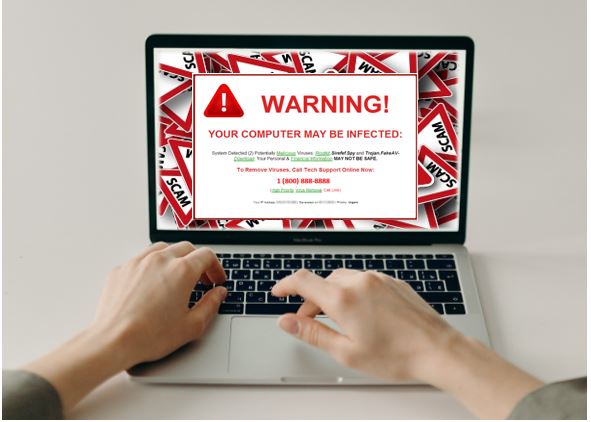
Protect Yourself From Tech Support Scams
Tech support scams include a scammer attempting to trick an individual into providing them remote access to a computer and its files. Scammers pretend to be from a reputable technical support company and will highlight common concerns regarding your computer. They may ask you to open files or run a scan on your computer — and then tell you those files or the scan results show a problem. The scammer will use technical terms to convince you that the problems with your computer are real and will request to connect to your system in order to “fix” the issue. Once on your computer, the scammer may install malware, steal your personal information, or ask for a payment in order to remedy the problem.
Common Tech Support Scams
- Unsolicited Phone Call
You receive a phone call from a well-known tech company on the Caller ID. They claim that there are viruses or other malware on your computer and trick you into providing them remote access to your computer or to buy software you don’t need. - Unknown Pop-ups
A pop-up window appears on your computer screen with a message warning of a security issue on your computer and directs you to call a phone number to get help. The person who answers may pretend to run a diagnostic test and claim to identify more problems. - Phishing Email About Antivirus Software Renewal
You receive an email that states your antivirus software license is set to expire or has been renewed and you have been charged a fee. The message provides a number to call which connects you to a scammer who will claim there are viruses or other malware on your system.
Avoid Tech Support Scams
- Never give control of your computer to a third party unless you know it is the representative of a computer support team that you initiated contact with.
- Avoid unsolicited calls from tech companies as legitimate tech support companies will not call customers unsolicited. Scammers can spoof phone numbers to portray a legitimate company on Caller ID so it can't always be trusted.
- Watch out for warning screens. If you receive a pop-up warning screen that directs you to call a phone number, it is most likely a scam. Instead, shutdown the computer and restart it.
- Utilize your antivirus software by maintaining an updated version of a trusted antivirus software and running scans daily.